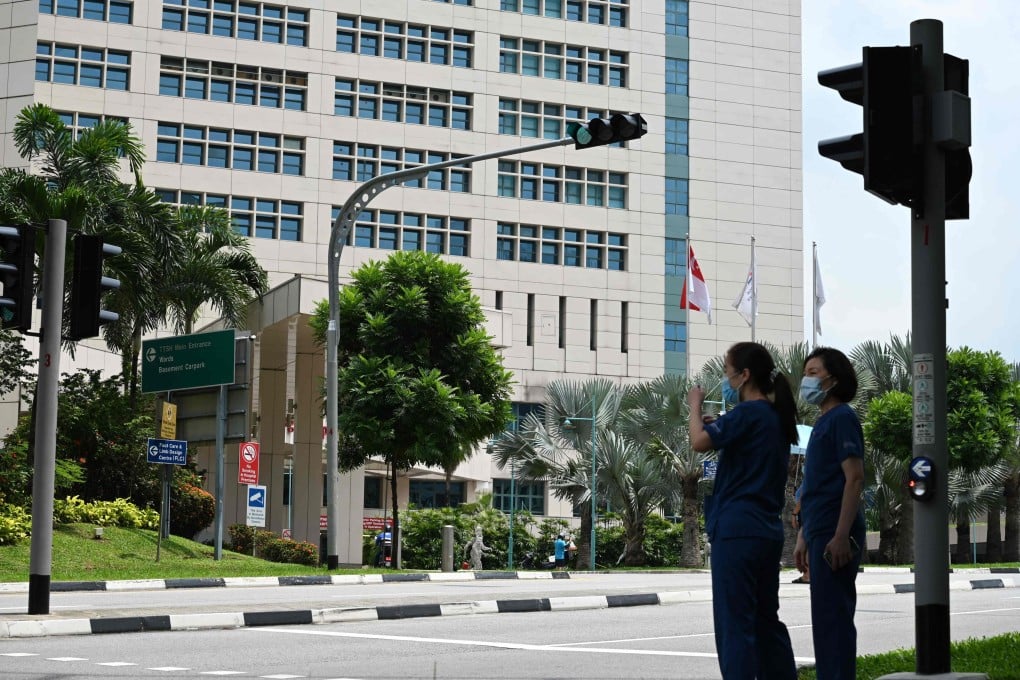Advertisement
Singapore tightens coronavirus restrictions amid hospital cluster fears. But will this affect travel bubble?
- Certain public areas will be closed and mall shoppers limited after 13 Covid-19 cases linked to Tan Tock Seng Hospital - including five who were fully vaccinated
- Singapore also banned visitors from India’s neighbours Bangladesh, Nepal, Pakistan and Sri Lanka, and cautioned that the Hong Kong travel bubble situation is ‘fluid’
Reading Time:4 minutes
Why you can trust SCMP

Singapore is enforcing stricter coronavirus measures after finding an infection cluster at one of its largest hospitals, with health authorities saying on Friday they may consider further restrictions if cases grow and indicate widespread transmission.
The country this week reported its highest number of new domestic Covid-19 infections in about seven months, after a run of almost zero domestic transmissions. It currently has over 61,000 infections and this month reported 55 new local cases compared to the nine in March.
The new controls include restricting the number of people in malls, shops and attractions, and closing public areas such as outdoor barbecue pits in parks and condominiums. Campsites will also be closed. In addition, employers have been urged to let staff work from home and avoid social gatherings at work, just weeks after the limit on employees in workplaces was relaxed from 50 per cent to 75 per cent.
Advertisement
Singapore will also ban short-term visitors from the four countries neighbouring India – Nepal, Pakistan, Bangladesh and Sri Lanka – from 11.59pm on Saturday, given India’s “sharp increase” in infections. It has reported over 2.5 million cases in the past seven days, 30 times as many as in mid-February. Singapore banned short-term arrivals from India starting April 23. There will also be stricter quarantine requirements for arrivals from Thailand, which has in recent weeks set record daily highs of new cases and deaths.
Singapore on Thursday announced a new cluster of infections at Tan Tock Seng Hospital in the centre of the city and on Friday reported four more cases linked to the cluster, bringing the total to 13. Of these, five are staff and eight are patients.
Advertisement
Advertisement
Select Voice
Select Speed
1.00x